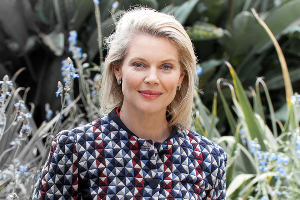
These comments follow the decision by the Bank's Monetary Policy Committee to raise the OCR by 75 basis points, as was widely predicted.
Meanwhile it has been revealed that the bank considered raising the rate by 100 basis points, and gave that option more weight during the debating stage than the lower-end possibility, 50 points.
And the whole business has made a small recession next year likely to happen.
Nick Tuffley of ASB says the RBNZ’s OCR forecasts imply a peak of 5.5% before a year and a half of relentless rises finally level off.
“From here we expect the RBNZ to hike the OCR by 75 basis points in February and by 50 in April,” Tuffley said.
However he noted that his own bank's inflation forecasts fell slightly short of the RBNZ version, so there was still a chance that the RBNZ did not quite reach 5.5% in the end.
Michael Gordon at Westpac said the Reserve Bank's own forecast of a 5.5% OCR by next year was a major surprise since it was such a big jump from its last estimate.
“The RBNZ sees inflation as deeply embedded in the New Zealand economy,” Gordon said.
“It now believes that a recession will be needed to bring inflation back within the 1-3% target range in the coming years.
“Even then, it has substantially upgraded its inflation forecasts compared to August, and is not expecting inflation to drop below 3% until the second half of 2024.”
Gordon added his own estimate for an OCR peak was lower than the Reserve Bank's number, at 5%.
The possibility of a recession was explained further by the Governor of the Reserve Bank, Adrian Orr, speaking to reporters.
“Inflation is no-one's friend,” he said.
“In order to rid the country of inflation, we need to reduce spending levels. That means we will have a period of negative GDP growth, to the tune of about 1% … and we are saying that will be around the second half of next year.”
Orr added that would be followed by a far smaller contraction in the subsequent quarter.
The latest rise in the OCR was the largest since the OCR was incorporated, though bigger falls have been recorded.
In a statement, the committee justified its decision by saying measures of core inflation continued to rise and price pressures broadened in the September quarter more strongly than expected.
Furthermore, inflation was likely to last, and there was a risk that the longer actual inflation remained above the target band, the more likely it was that higher inflationary expectations would become embedded.




Comments
No comments yet.
Sign In to add your comment